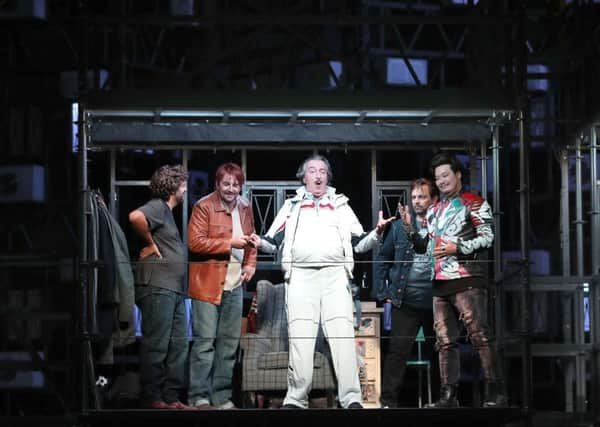A worthy La bohème for the 21st century


La bohème *****
Festival Theatre
We’re looking into a sprawling metropolitan abyss, a claustrophobic jungle of high-rise apartments that might be on the outskirts of any big city: a place where the macrocosm and microcosm co-exist. On the one hand, myriad identical windows, spreading into the distance, allude to scores of anonymous secret lives which we will never, nor probably want to, know about.
On the other hand, our camera zooms in on the foreground, fly-on-the-wall-style, to a single skeletal apartment block and the tragedy that unfolds within. Set in funky modern times – the designer is Alfons Flores – I was often reminded visually of Rent, the Broadway musical based on La bohème, though thankful that the oral ingredient here was Puccini’s gorgeously gritty filmic score, meatily spun out by conductor Gianandrea Noseda and his Turin orchestra.
Advertisement
Hide AdAdvertisement
Hide AdIt’s a production, for all its busyness and quick-fire contemporary edge, that fully respects the deep emotional sweep of that music, and its role in opening up the hearts and minds of the characters. So from the opening act, the free living quartet of painter Marcello (Simon Del Savio), poet Rodolfo (Giorgio Berrugi), musician Schaunard (Benjamin Cho) and philosopher Colline (Nicola Ulivieri) are not the homogenous one-dimensional sit-com variety, but four interesting individuals with distinctive sinister traits, to which the engimatic fragility of Mimi (Erika Grimaldi) adds both warmth and unrest.
Grimaldi and Berrugi are a terrific pairing: her rich velvety vocal timbre ripe for the tragic role; his soaring lustre and precise intensity reflecting the ecstasy and pain in equal measure. Del Savio finds in Marcello a compelling combination of the caddish and the carefree, against which Kelebogile Besong’s Musetta is wonderfully loud in personality, hotly coquettish in song.
The heavily populated Act 2 is a euphoric triumph, a riot of colour and action, from the breezy kids of the NYCoS Edinburgh Choir and lusty Turin Opera chorus, to the final bright red champagne-burst entry of spinning majorettes and marching band. This is La bohème for the 21st century.